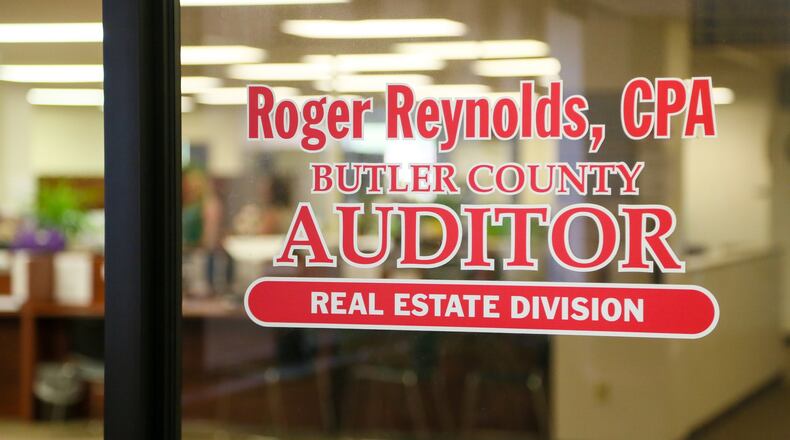“After we saw the denials that Franklin and Montgomery counties received, this did not come as a shock,” Reynolds said. “But after speaking with the tax commissioner and his executive administrator for real property taxes I believe the state is willing to work with us as we seek to maintain a fair, conservative value on real estate.”
Reynolds said his staff was nearly done with the 2020 reappraisal of 165,000 commercial and residential properties when the coronavirus pandemic interrupted life in mid-March.
“Extensions of time to complete reappraisals have historically been limited to instances in which it was impossible for counties to complete the sexennial reappraisal in the reappraisal year,” McClain wrote to Reynolds. “In no circumstances has the extension operated to change the reappraisal year. Here the auditor has noted in his request that the reappraisal work is nearing completion. In light of this, there is no cause shown to grant an extension.”
RELATED: Butler County auditor explains request to delay property reappraisals
Generally, increased property values do not translate to higher tax bills unless a jurisdiction alters an existing levy or asks voters to approve a new levy. The Ohio Constitution provides that no more than 1 percent of its true value or 10 mills of the assessed value can be increased without voter approval.
A $100,000 home with an assessed value of $35,000 will generate approximately $35 at one mill. Outside millage refers to levies or bond issues that are voted on. There are 133 voted levies in Butler County.
Reynolds faced a similar dilemma during the Great Recession. He was forced to reappraise properties in 2008. He was able to go back in 2009 and adjust the numbers to more realistic levels.
“While I did come away from my recent conversation with the tax commissioner with what I felt like were positives,” Reynolds said. “If the market responds to massive job losses and extended business closures in a sustained negative manner I am prepared to follow our 2009 playbook and do my own property update in 2021 to get values back in line with the market.”
West Chester Twp. residents could be impacted by the delayed reappraisal denial because their trustees are considering asking them to approve brand new police and fire levies, 2-mills for each, in November. Trustee Mark Welch said Reynolds told him if they pass the levies the increased property values would apply.
Finance Director Ken Keim told the Journal-News his revenue generation assumptions were based on a 5 percent increase, because of the property reevaluation. The new 2-mill levies would generate about $4.4 million each. The owner of a $200,000 home would pay about $23 a month or $180 annually, according to Keim.
Both the police and fire departments survive on their existing levies and reserves and the carry over is about to dry up. The fire levy has gone untouched, meaning it hasn’t been replaced or adjusted at all, since 2006. For police, it has been since 2010.
Welch said they are not asking to build the “Taj Mahal” and he will likely vote in favor of asking voters for new money next week.
“There’s a need, we have empirical evidence that the funds are coming to a conclusion, the funds are dwindling,” Welch said. “It’s just a matter of time whether it’s this year, next year or the year after that, it’ll be up to the people.”
The Mental Health and Addiction Recovery Services Board and the levy to support elderly services will both be on the November ballot, but those requests are renewals so the reevaluation will not have an impact, according to MHARS Board Executive Director Scott Rasmus.
The majority of the other governmental taxing districts in the county say they are not planning new levies. Hamilton and Middletown did not respond.
Reynolds said he is actually more concerned what the reassessment will do to those commercial properties that are appraised on the income the property generates.
“Without the extension, these property owners are going to see values increase in 2020 based on market factors from 2019 — factors that no longer apply,” Reynolds said adding the tax commissioner is “willing to accept a commercial ratio in the high 80s as opposed to the traditional expectation of the low to mid 90s as a percentage of value.”
About the Author
